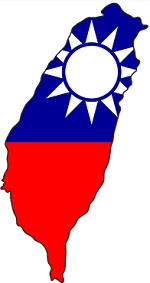Share trading in Taipei-based OBI Pharma has caught the attention of prosecutors in Taiwan as the company's valuation plummeted after announcing initial results for breast cancer treatment candidate OBI-822/82. 
The China Post reported that shares in OBI have lost NT$37.2 billion (around $1.12 billion) in market capitalization from late February to early March.
The volatility in the shares was apparently sparked by a vague set of clinical trial results unveiled on Feb. 21, China Post said, adding that the Shihlin District Prosecutors Office released records showing 500,000 shares of the stock exchanged hands in the past four days to March 1.
"Prosecutors are now investigating whether traders involved in the massive sell-off of shares (obtained by means of stock borrowing) had forehand knowledge that the drug would be a failure and net huge profit before a future stock plummet," the newspaper said in an online edition.
As well, the newspaper said, around 7.4 million shares in OBI bought on margin were snapped up a week prior to the company's trial result announcement.
The company said on Feb. 21 that the candidate did not meet the primary efficacy endpoint in a Phase II/III study, but that it showed improvement in progression-free survival and the secondary endpoint of overall survival "is trending towards statistical significance."
It added that full trial results will be released at an unspecified international conference and that it hoped to move to a global Phase III study.
The share volatility has also been brought before the Financial Supervisory Commission (FSC) Chairwoman Wang Li-ling, the China Post said, adding that the regulator monitors the share market closely and in regard to OBI could provide comment in the coming month.
She also said last month that the government would have to make tougher rules on clinical trial progress disclosures, the newspaper said.
The China Post noted a similar previous case involving Medigen Biotechnology in 2014 that sharp sell-off after a drug trial fell short.
Taiwan is in the process of a transfer of government through May following January polls that brought the opposition Democratic Progressive Party to power.
Outgoing president, Ma Ying-jeou, said in February that biotech "is set to become a major growth engine for the local economy with the biomedicine sector expected to account for 14% of the country's GDP by 2020, according to a report.
That was followed by local media reports in Taiwan that President-elect Tsai Ing-wen's older brother Tsai Ing-yang was a major investor in OBI Pharma in his capacity as a member of Futai Investment.
As well, in December last year OBI denied rumors it had wrongly granted shares to the president of a research academy who then was said to have transferred the shares to the company's president.
OBI is one of a handful of biotech and pharma companies listed on the Taipei main board exchange that have caught interest from domestic investors, though not as widely abroad.
The companies include TaiMed Biologics; TWi Pharmaceuticals; PharmaEssentia; TaiGen Biotechnology; PharmaEngine; Medigen Biotechnology; Panion Biotech; Taiwan Liposome; and Mycenax Biotech.
As well, in October of last year, Hsinchu-based JHL Biotech listed an unspecified number of shares on the Taiwan Emerging Stock Board, a platform for smaller companies to gauge investor interest for a wider public offer.
- here's the story from the China Post